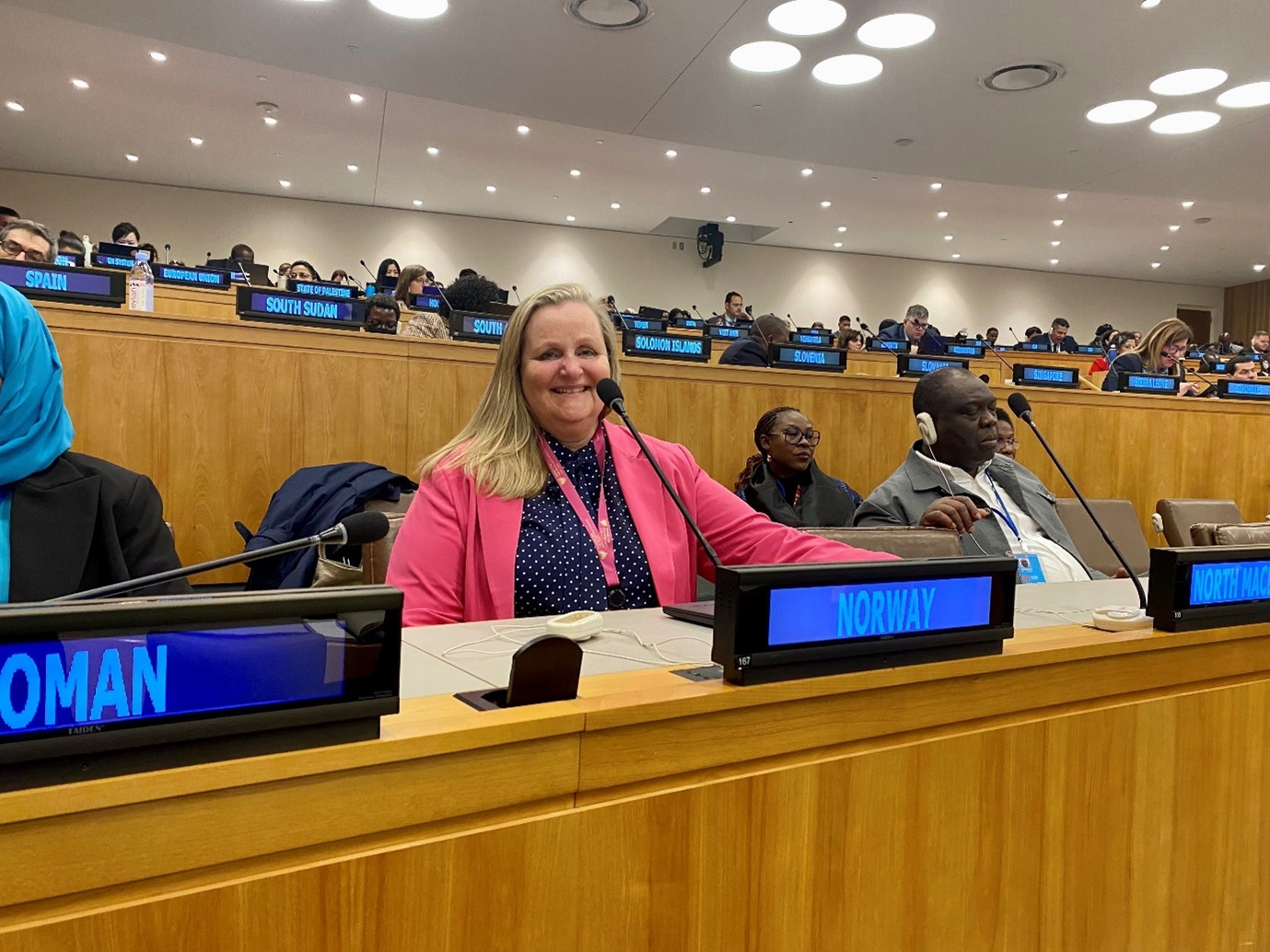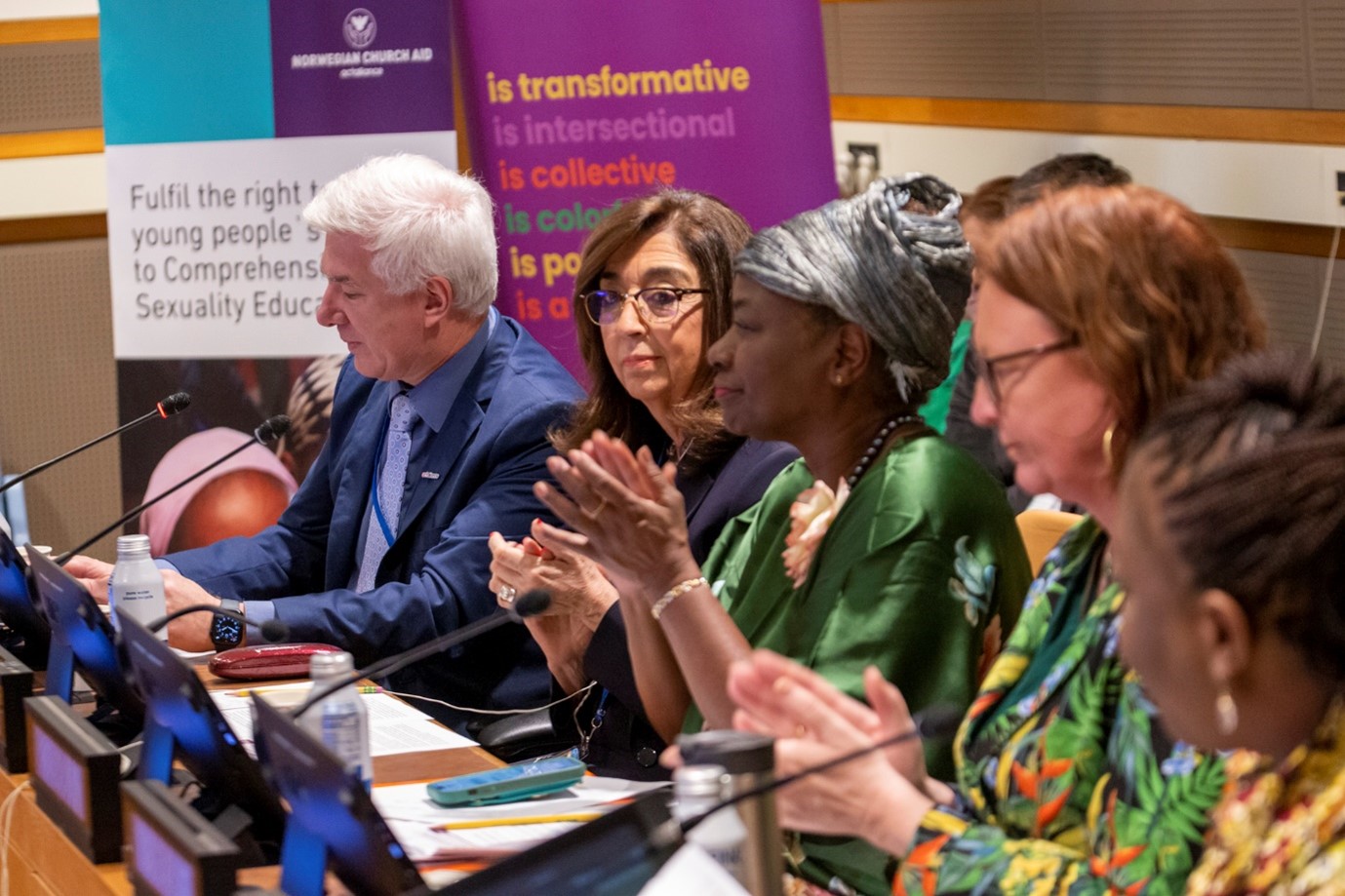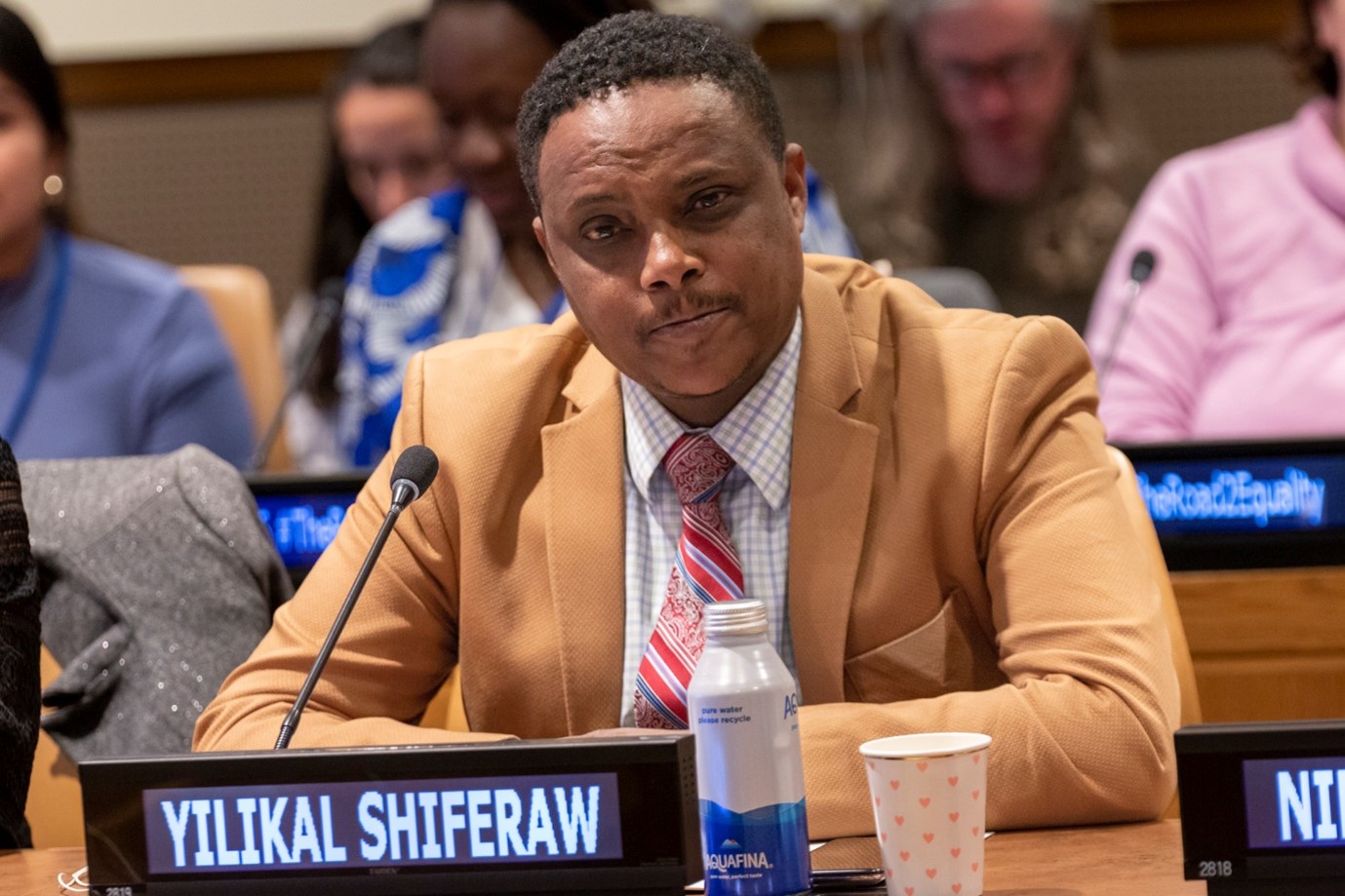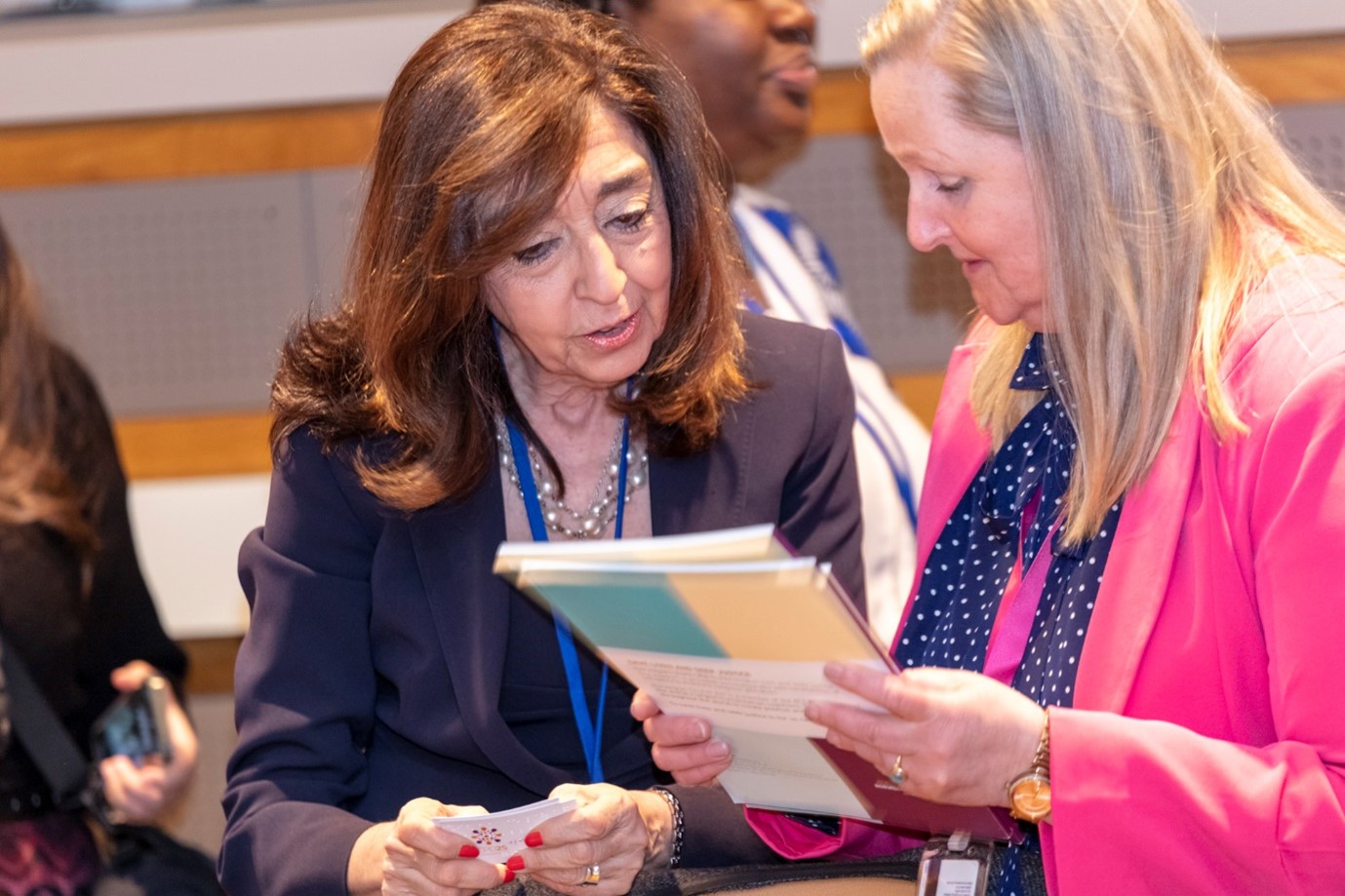
NCA participated in this year's Population and Development Commission both through the official Norwegian delegation and through the delegation to ACT. NCA's Senior Advisor for Health, Haldis Kårstad, was a member of the Norwegian delegation and the ACT delegation.

In addition, NCA organised and co-hosted a side event called "Between Taboos and Freedom: Religion, Rights and Reproductive Justice ". Haldis Kårstad, Senior advisor health. Photo: Stephen John Mallon.
Every spring, representatives from UN member states and a number of civil society organizations gather in New York for the UN Commission on Population and Development (CPD). This year's commission was the 56th in a row, and the theme was education. This includes sexuality education, and it was shown that this would be the crux of the controversy at this year's commission. One of the main objectives of the Commission is for the countries of the world to reach agreement on key standards for population and development, and on how to follow up the program of action agreed by member states at the International Conference on Population and Development in Cairo (ICPD) in 1994.
The Cairo Conference is seen as the start of the commitment to sexual and reproductive health and rights (SRHR) in the UN, with agreement on key issues within NCA's subject areas.

Photo: Stephen John Mallon.
On the 11th of April the side event NCA where organizing and co-hosting took place inside the UN headquarters. See link to the event here. We had an impressive list of participants in the panel of the event:
The event was very well received, and we were one of the most attended events during CDP 56. There was naturally a lot of attention attached to the fact that we had got the director from UNFPA to our event and also as one of the co-sponsors. Dr.Kanem was very direct and personal in her speech. She said that religious advocates and leaders need to help UNFPA to have a more open dialogue about human sexuality and equality within communities. UNFPA is proud of working with faith-based communities, she said, referring to the MOU UNFPA has with the ACT.
State Secretary Sandkjær said in her speech that she had been at CDP in 1994 as a youth delegate for the World Council of Churches. She argued that religious leaders have a tremendous influence when it comes to achieving the rights of women and girls. She said the Norwegian government is a strong defender of CSE and SRHR.
Paula Sanchez-Mejorada of Catholics for Rights to Decide recalled that religious leaders were not a homogenous group and that they worked with FBO's who were more progressive and who questioned harmful norms and customs that promote discrimination. They work with non-patriarchal and feminist theologians to promote new narratives.
The director of ACT, Rudelmar, emphasized in his speech that religious actors and networks are interconnected and can be changemakers. He said those of us who work at ACT are breaking the silence and breaking down silos. We are strong advocates for reproductive justice, and he urged everyone to join us on this journey.

Photo: Stephen John Mallon.
NCA had invited its partner Yilikal Shiferaw from the Orthodox Church in Ethiopia. He described in a good way how the religious tours in the country worked and how the religious leaders were able to reach out to people far away from governmental structures and how they helped break down taboos on Female Genital Mutilation (FGM) and gender in Ethiopian society. He talked about the various methods they used like the development of teacher books and toolkits and other things. His post was very well received and commented on by both Sandkjær and Dr.Kanem.
A packed hall was reminded of the importance of comprehensive sexuality education in order to achieve the UN Sustainable Development Goals from Argentina's UN Ambassador H.E. Ms. Maria del Carmen Squeff. She gave a strong concluding speech in which she highlighted holistic sexuality education for children and young people and cited examples of how the church in Argentina had been active in this area, including the Episcopal Church.

The Argentina UN ambassador get the NCA CSE toolkit after the side event. Photo: Stephen John Mallon.
A small group of countries led by Russia, with strong support from, among others, Egypt, Saudi Arabia, Belarus, and Vatican City, rejected all proposals that included sexuality education in education during the population commission's meeting at the United Nations. In addition, representatives from extremist religious and other organizations that fight against Sexual Reproductive Health Rights (SRHR) also attended the commission. We also noticed this during our event. Several members of the opposition came and filmed the participants during our event. We haven't received any feedback on social media since our event, but we were cautious about posting things on social media afterwards considering that this could lead to personal harassment.
The entire event could be followed on UN TV. If you would like to have a look the link is here.
There were many key topics on the agenda when the UN countries met to talk about education. The member states agreed on the need to strengthen children and young people's access to education, but the proposal that the Commission should reaffirm young people's right to knowledge about their own bodies and sexuality through comprehensive sexuality education was not agreed.
The issue led to engaged negotiations late into the night, with very strong views on both sides. The Commission was characterized by the geopolitical situation we are in, with strong alliances across themes.
On Friday afternoon, however, it became clear that Russia and its few allies would not agree to any of the proposals that included references to sexuality, and this year's commission ended without a final document.
The results of this year's Population Commission indicate an increasingly polarized climate internationally when it comes to SRHR in general, and holistic sexuality education. It was also evident how major geopolitical issues affect various UN processes, and it was again reminded of the importance of civil society organizations holding their governments accountable for their promises in various UN forums. In recent years, the Commission has on several occasions ended up without a final document, most recently in 2018.
Published: